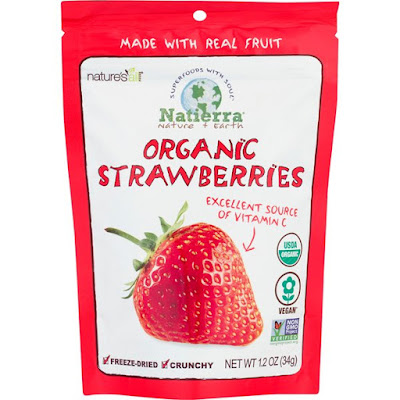Another important strawberry nutrition fact you may want to consider is that the fruit is great for brain health. Some studies have indicated that the berries can lower the risks of suffering from age-related dementia, as well as Alzheimer's disease. Additionally, strawberries are a great source of several types of vitamins including vitamin A, potassium, phosphorus, calcium, magnesium, and vitamin B6. Each of these vitamins help maintain healthy brain tissue. Vitamin C, in particular, is a powerful antioxidant that can help prevent free radical damage and thus protect against degenerative diseases like Alzheimer's and cataracts.
When it comes to strawberry nutrition and brain health, eating the berries on a regular basis is recommended. Since they are highly perishable, eating fresh strawberries is the best choice. You should eat at least six ounces of berries each day. This amount is just a little more than one ounce a day for adults. However, the benefits of eating the fruit are even greater when it is frozen or dried.
You can find strawberry antioxidants in a number of foods. For example, strawberries are a great addition to any diet that includes fruits and vegetables, since they are full of the antioxidant anthocyanins. You can buy strawberries at produce and grocery stores, or make them yourself at home. One of the best strawberry nutrition facts you can learn is that eating two or three berries each day will provide an extra boost to your immune system.
Another benefit of eating this delicious fruit is its powerful anti-inflammatory properties. In fact, research has found that the antioxidants in strawberries are some of the most powerful in the world. Anti-inflammatory foods like tomatoes are beneficial to your overall digestive health and can aid in reducing inflammation throughout your body. In fact, there are so many ways that the berries can benefit your health and well-being, it is difficult to list them all here.
As with most other food sources, eating fresh strawberries has a number of nutritional benefits. One of the biggest benefits is that the tiny berries have a very low Glycemic Index (GI). The lower the GI, the less sugar is absorbed into the bloodstream. This means that you can eat as many servings of strawberries per day as you would like, without worrying about the sugar spike in your blood. Another important strawberry nutrition fact is that because the berries have very little content of starch, they have very little effect on the insulin levels in your body. This makes them ideal for diabetics and people trying to control their blood sugar.
Finally, let's talk about the vitamins and minerals that are contained in strawberries. Some of the vitamins and minerals that you can expect to find in strawberries are: Vitamin A, B, C, E, K, and the aforementioned Vitamins A, B, and C. Since these vitamins are readily available in meat, fish, and poultry products, they are not a great addition to fresh fruits and vegetables. However, consuming strawberries regularly will give you all of the essential vitamins and minerals that you would get from eating a variety of fresh fruits and vegetables. Finally, one of the most important strawberry nutrition facts that we will discuss today is the fact that strawberries contain just as much potassium as bananas. Potassium plays a vital role in regulating your blood pressure and can help decrease your risk for hypertension and heart disease.
Strawberry nutrition is beneficial not only for your body but it can also benefit your overall health. In particular, it can reduce the risk of developing type 2 diabetes by reducing your risk of bowel and colorectal cancer, and it can prevent damage to the brain and nervous system that can be caused by chemical exposure. In addition, strawberries are great for maintaining your weight so if you are trying to lose weight, you should really consider adding them to your diet to help you reach your goals. Finally, as you age, you will notice that your body tends to require less food and more water because of the various vitamins and minerals that are contained in strawberries.
